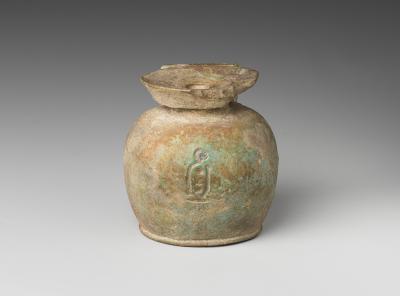Graduate Program on Classical Antiquity and the Near East (Ph.D. Track)

CANE is an interdisciplinary track within the Classics Ph.D. program, tailored to students who want to focus on interaction between the languages and cultures of the Greco-Roman and the Near Eastern worlds. On the classical side, the primary (if not exclusive) focus is on the eastern Mediterranean and therefore on Greek language. On the Near Eastern side, the languages of study vary according to the student’s goals, including potentially Arabic, Syriac/Aramaic, Hebrew, ancient Iranian languages, Persian, Coptic, Akkadian, and Ugaritic. The program will emphasize the achievement of proficiency in the relevant languages, as well as on the fields’ research tools and comparative methods. The student following this track will pursue coursework in both the Departments of Classics and Near Eastern Languages and Cultures and will be expected to achieve research proficiency in at least one Near Eastern language related to their scholarly interests. Students will follow a version of the core Classics Ph.D. curriculum modified to include requirements from Near Eastern studies.
Upon entry to the Classics program (or within their first year), the student and the CANE track advisor will draw a coursework plan geared towards the student’s declared interests, within the requirements outlined below, and in consultation with the Classics Director of Graduate Studies. The most crucial and challenging aspect of the inclusive study of the broader Mediterranean and Near East is the acquisition of several languages at the necessary level to conduct research across disciplines. The Classical Antiquity and the Near East Track is therefore anchored in the study of the ancient languages offered by the two departments (Classics and Near Eastern Languages and Cultures). Students and faculty from other departments, however, listed below, are important part of research on the ancient Mediterranean and Near Eastern cultures at OSU. Students admitted to the CANE program should have previously acquired an intermediate level of at least one Near Eastern language (as we expect also in the case of Greek and Latin), so as to be able to pursue deeper knowledge in that language through graduate coursework and to add other languages, as needed for their research (see description below). Students may pursue the GISRAM program (Graduate Interdisciplinary Specialization: Religions of the Ancient Mediterranean) at the same time as the CANE program.
Image Source: Greco-Egyptian faience aryballos featuring pseudo-cartouche of New Kingdom pharaoh. Late seventh-early sixth century BCE. New York, Metropolitan Museum of Art 17.194.2457. Public Domain.
CANE Advisor (Classics)
Christopher S. Parmenter
parmenter.14@osu.edu
CANE Advisor (NESA)
James D. Moore
moore.5089@osu.edu
Classics Department Chair
Mark Fullerton
fullerton.1@osu.edu
Classics Director of Graduate Studies
Alan Ross
ross.2005@osu.edu
Classics Department Manager
Khalid Jama
jama.10@osu.edu
Classics Academic Program Services Specialist
Leah Bauer
bauer.756@osu.edu
The CANET students will follow the Classics Department Ph.D. program requirements, with the following exemptions and requirements:
- Exemption from two Classics (CL/GR/LAT) seminars: among the four Classics seminars they take, at least one of them must be a Latin seminar.
- Required NELC courses: five graduate level courses (15 credits) in the NESA department (5000-level and up, 3 units of credit or more): At least three will have to be language courses; no more than 6 credits of independent studies can be counted towards these five courses.
- Required course on Introduction to the Field of Near Eastern Languages and Cultures (NELC 5105; one credit hour).
- The student will pass a comprehensive exam in one Near Eastern language of their specialty, set by the corresponding NESA faculty member.
- The CANET candidacy or field exams will include two Classics fields and two fields focused on Near Eastern or Near Eastern/Classical topics (taught by qualified faculty from any department). The two Classics fields need not be divided between Greek and Latin, but the four fields should balance language-literature and history/cultural studies.
NOTES
- Any one of the NESA courses will cover the ancillary course required of Classics students.
- Students are required to take one History course, as required for Classics students (if it is a NESA history course, it should be in addition to the five NESA courses required).
- CANET students will be required to pass candidacy exams in both Greek and Latin.
- This track does not confer a separate degree from the Classics/Greek and Latin degree (although the specialized track will be noted in the student’s CV and will strongly shape the student’s professional profile). CANET is not a Graduate Interdisciplinary Specialization (GIS). The GIS on Religions of the Ancient Mediterranean (GISRAM) and in Comparative Literatures are not incompatible with this track.
- Students are encouraged to choose seminars and coursework taught by the faculty affiliated with this track. When a seminar specially intended for the comparative study of Greek and Near Eastern sources is offered, students will be expected to take it or audit it. They are also encouraged to take advantage of courses on methodologies and research tools of the area of their interest, when offered.
